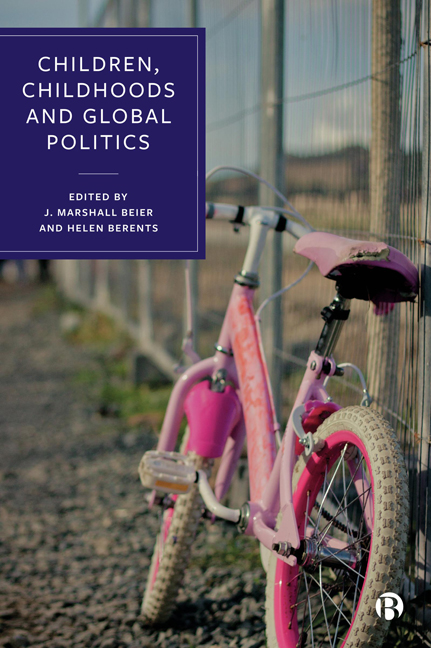15 - Centring the Demand for Critical Climate Justice Education
Published online by Cambridge University Press: 03 April 2024
Summary
Introduction
The lived experiences of children and young people and the actualization of their political agency – whether individually or collectively – remain largely under-recognized within wider policy frameworks, especially those that attempt to systemically address the ongoing climate crisis. In terms of current global priorities, the climate crisis is placing children and young people at the centre of both policy and advocacy, and there are now multiple examples of political spaces within a context in which they can be seen to be an important part of ‘doing the work’ (see, for example, Byrne et al, 2019). This chapter examines this centrality within the context of education, specifically arguing that children and young people are increasingly advocating for a ‘critical climate justice praxis’, as coined by Sultana (2022: 119), that ‘demands systemic changes to address structural inequities and destabilize power systems that produce various climate injustices’. This is becoming more visible as a result of the political space that liberal institutions are allocating children and young people as moral authorities in addressing the climate crisis (Leggett, 2019) because they, and future generations, will be the ones witnessing its long-term impacts.
However, the demand for a climate justice praxis, and this moral positioning, clash with current educational frameworks for climate action in that, despite the widespread recognition by key stakeholders that critical climate justice education should involve radical critique, examination, and solutions, what currently exists is a framing that is neoliberal and colonial in nature. This chapter argues that alongside the very clear central role that children and young people play in climate action, what is required is a recognition that current frameworks of climate education are not, in fact, fit for the radical change that the climate crisis requires. Many of the education policies currently being promoted strip questions of justice, politics, and power from discussions of climate change and, in the end, deny children and young people the political space required to fully explore the causes and spectrum of responses to climate change. This is to say that the current policy environment sends a dual message that while children and young people are authorities in climate politics, they should not be given education that is critical of historical and enduring colonial and neoliberal structures, which remain the cause of the climate crisis.
- Type
- Chapter
- Information
- Children, Childhoods, and Global Politics , pp. 210 - 224Publisher: Bristol University PressPrint publication year: 2023

